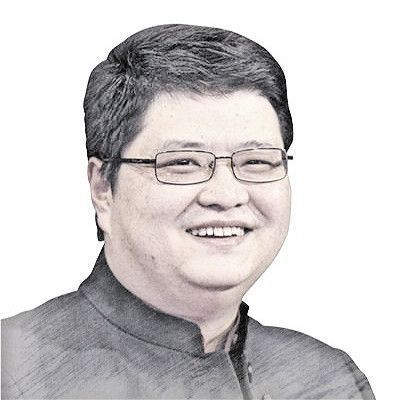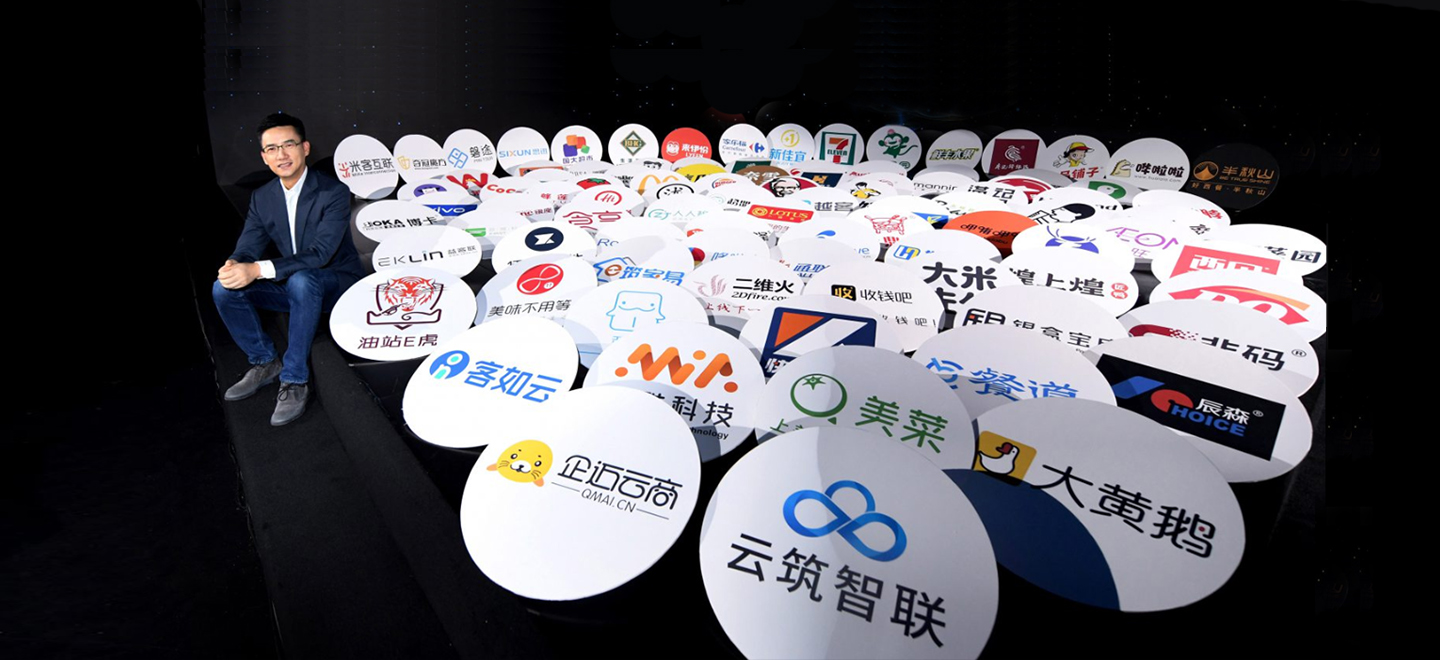Li Bin
-
DATABASE (83)
-
ARTICLES (59)
Li Bin is the founder and CEO of BitAuto.com, China’s first NYSE-listed auto content and marketing online operator, and the founder and CEO of NextEV, an electric automobile development company that launched the world’s fastest electric car.
Li Bin is the founder and CEO of BitAuto.com, China’s first NYSE-listed auto content and marketing online operator, and the founder and CEO of NextEV, an electric automobile development company that launched the world’s fastest electric car.
Hangzhou Bin Chuang Investment is a wholly owned unit of Hangzhou Binjiang Real Estate Group.
Hangzhou Bin Chuang Investment is a wholly owned unit of Hangzhou Binjiang Real Estate Group.
CEO and co-founder of XAG
Peng Bin graduated at Xidian University in Xi’an with a bachelor’s degree in computer science in 2004. After working at Microsoft China as an engineer for two years, the aeromodelling enthusiast started XAIRCRAFT in 2007 when he was 25 years old. The startup was renamed as XAG in 2014, with Peng as CEO. In 2020, Peng made it onto the Forbes China “40 Under 40” list.
Peng Bin graduated at Xidian University in Xi’an with a bachelor’s degree in computer science in 2004. After working at Microsoft China as an engineer for two years, the aeromodelling enthusiast started XAIRCRAFT in 2007 when he was 25 years old. The startup was renamed as XAG in 2014, with Peng as CEO. In 2020, Peng made it onto the Forbes China “40 Under 40” list.
Famous techpreneur Li Yinan (b. 1970) is the former CTO of Baidu and former CEO of Wuxian Xunqi, a China Mobile subsidiary. After Li graduated from Huazhong University of Science & Technology with a master’s degree in Optics Engineering, he joined Huawei and was promoted to vice-president of its Central Research Department in just six months; in 1997 Li because the youngest vice-president at Huawei. In 2001, Li quit Huawei and started his own data communication company, Harbour Networks, which followed the same structure of Huawei and soon became its main competitor. In 2005, Harbour Networks lost in its intense battle with Huawei and was acquired by the larger player. Even though Li rejoined Huawei after the acquisition, he was never able to re-enter the core management team because of his damaged relationship with Ren Zhengfei, the founder and president of Huawei. In April 2015, Li founded his smart e-scooter company, NIU Smart Scooters. Li began investing in 2010 and joined GSR Ventures in 2011. Up to June 2015, Li had invested in more than 10 companies from the TMT sector. Li stood trial for insider trading in March 2016, according to news reports.
Famous techpreneur Li Yinan (b. 1970) is the former CTO of Baidu and former CEO of Wuxian Xunqi, a China Mobile subsidiary. After Li graduated from Huazhong University of Science & Technology with a master’s degree in Optics Engineering, he joined Huawei and was promoted to vice-president of its Central Research Department in just six months; in 1997 Li because the youngest vice-president at Huawei. In 2001, Li quit Huawei and started his own data communication company, Harbour Networks, which followed the same structure of Huawei and soon became its main competitor. In 2005, Harbour Networks lost in its intense battle with Huawei and was acquired by the larger player. Even though Li rejoined Huawei after the acquisition, he was never able to re-enter the core management team because of his damaged relationship with Ren Zhengfei, the founder and president of Huawei. In April 2015, Li founded his smart e-scooter company, NIU Smart Scooters. Li began investing in 2010 and joined GSR Ventures in 2011. Up to June 2015, Li had invested in more than 10 companies from the TMT sector. Li stood trial for insider trading in March 2016, according to news reports.
Founder and CEO of Smart Bees
Wang Bin founded home furniture company Smart Room in March 2015. He re-branded Smart Room into Smart Bees that was launched in Shanghai in December 2016. Wang had worked for several years as a general manager at the East China branch of Jindalu Cultural Industry Group before becoming an entrepreneur.
Wang Bin founded home furniture company Smart Room in March 2015. He re-branded Smart Room into Smart Bees that was launched in Shanghai in December 2016. Wang had worked for several years as a general manager at the East China branch of Jindalu Cultural Industry Group before becoming an entrepreneur.
Li is a TV presenter, entrepreneur and investor. Born in June 1970, she joined Beijing TV in 1993 as a news anchor. From 1995 to 1999, Li worked at CCTV as a TV show host. In 1999, she left CCTV and co-founded Fleet Entertainment with fellow TV host Dai Jun. The two co-hosted Super Talk Show from 2000 to 2016, one of the most highly viewed shows in China. Li founded cosmetics e-retailer Lefeng.com in 2008, skincare brand JPlus in 2009 and Star Venture Fund in 2015.
Li is a TV presenter, entrepreneur and investor. Born in June 1970, she joined Beijing TV in 1993 as a news anchor. From 1995 to 1999, Li worked at CCTV as a TV show host. In 1999, she left CCTV and co-founded Fleet Entertainment with fellow TV host Dai Jun. The two co-hosted Super Talk Show from 2000 to 2016, one of the most highly viewed shows in China. Li founded cosmetics e-retailer Lefeng.com in 2008, skincare brand JPlus in 2009 and Star Venture Fund in 2015.
Ex-Alibaba executive who is now a key figure in the Zhejiang province internet technology startup scene. In 1999, Li Zhiguo (Frank Li) moved alone to Hangzhou and became the 46th employee of Alibaba. In 2004, he left Alibaba and founded the highly popular life services platform Koubei (later acquired by Alibaba). He is also an active investor, having co-founded early-stage VC fund Ameba Capital in 2011. Li’s investments in Chinese startups include Mogujie, Kuaidadi and Zhaocai.
Ex-Alibaba executive who is now a key figure in the Zhejiang province internet technology startup scene. In 1999, Li Zhiguo (Frank Li) moved alone to Hangzhou and became the 46th employee of Alibaba. In 2004, he left Alibaba and founded the highly popular life services platform Koubei (later acquired by Alibaba). He is also an active investor, having co-founded early-stage VC fund Ameba Capital in 2011. Li’s investments in Chinese startups include Mogujie, Kuaidadi and Zhaocai.
Born in 1973, Li graduated from the School of Philosophy at Renmin University of China in 1997. After graduating, he worked as an IT journalist for China Youth Daily, where he interviewed tech giants such as Jack Ma. In early 2003, Li became chief editor of the IT section of web portal Sohu and then joined web portal NetEase as chief editor of its IT section later that year. In 2005, he resigned from NetEase and founded gaming portal Duowan. In 2008, Li founded YY Inc., a live streaming social media platform that went public on Nasdaq in 2012.
Born in 1973, Li graduated from the School of Philosophy at Renmin University of China in 1997. After graduating, he worked as an IT journalist for China Youth Daily, where he interviewed tech giants such as Jack Ma. In early 2003, Li became chief editor of the IT section of web portal Sohu and then joined web portal NetEase as chief editor of its IT section later that year. In 2005, he resigned from NetEase and founded gaming portal Duowan. In 2008, Li founded YY Inc., a live streaming social media platform that went public on Nasdaq in 2012.
UrbanIndo’s big data and analytics features are transforming Indonesia’s realty industry, as buyers and investors seek more detailed information to find properties in desirable locations.
UrbanIndo’s big data and analytics features are transforming Indonesia’s realty industry, as buyers and investors seek more detailed information to find properties in desirable locations.
Co-founder and CTO of Worktile
Li earned his master’s degree in Software Engineering from Nankai University. He won the Microsoft Most Valuable Professional award four years in a row starting in 2007. From 2009 to 2011, Li was in charge of system architecture design at Fetion, an instant messaging tool developer. In 2011, he co-founded a startup that provided personalized reading recommendations, but it failed after eight months. Li co-founded Worktile with Wang Tao in late 2012.
Li earned his master’s degree in Software Engineering from Nankai University. He won the Microsoft Most Valuable Professional award four years in a row starting in 2007. From 2009 to 2011, Li was in charge of system architecture design at Fetion, an instant messaging tool developer. In 2011, he co-founded a startup that provided personalized reading recommendations, but it failed after eight months. Li co-founded Worktile with Wang Tao in late 2012.
Founder and Board Chairman of Leepet (formerly Weibaquan)
Li Yuan started his own internet community and chatroom business as early as 1997, after graduating from high school. The animal lover went on to help his uncle manage his playground business for pets. Hence Li began his career in the pet business.
Li Yuan started his own internet community and chatroom business as early as 1997, after graduating from high school. The animal lover went on to help his uncle manage his playground business for pets. Hence Li began his career in the pet business.
EverSafe Online (Threat Hunter)
Shenzhen's cybersecurity startup can detect malicious threats well in advance, with 99% accuracy.
Shenzhen's cybersecurity startup can detect malicious threats well in advance, with 99% accuracy.
President and co-founder of Bluepha
Li Teng graduated in bioscience at Tsinghua University in 2011 and stayed on to complete a PhD in synthetic biology in 2016. He joined a SynBio project team to create PHA bioplastics during his postgrad research at university.Li was also the leader of Tsinghua University’s team that won a gold medal at the International Genetically Engineered Machine (iGEM) Design Competition. He met Zhang Haoqian at the iGEM giant jamboree in 2010 and they have remained friends ever since.Li and Zhang co-founded Bluepha in 2016, a spin-off from Tsinghua University’s SynBio research project. In 2018, Li was selected for MIT Technology Review’s list of Innovators under 35. In 2019, he was named one of the 40 Chinese business elites under 40.
Li Teng graduated in bioscience at Tsinghua University in 2011 and stayed on to complete a PhD in synthetic biology in 2016. He joined a SynBio project team to create PHA bioplastics during his postgrad research at university.Li was also the leader of Tsinghua University’s team that won a gold medal at the International Genetically Engineered Machine (iGEM) Design Competition. He met Zhang Haoqian at the iGEM giant jamboree in 2010 and they have remained friends ever since.Li and Zhang co-founded Bluepha in 2016, a spin-off from Tsinghua University’s SynBio research project. In 2018, Li was selected for MIT Technology Review’s list of Innovators under 35. In 2019, he was named one of the 40 Chinese business elites under 40.
Something positive could come out of the Facebook fallout
Users and startups could learn a lot from the Facebook-Cambridge Analytica scandal. For a start, don’t succumb to apathy
OLIO: Zero food waste app expands with new product categories, going global
Recent $43m Series B funding will let sustainability app more than triple hiring, add homemade products and household goods to product listings
Chinese startups join the race to address chip shortage amid funding boom
Would an overheated semiconductor startup scene and the ability to design cutting-edge chips be enough to help China achieve chip self-sufficiency?
In depth: The business ecosystems China’s tech giants and unicorns build
Startups could accept to join Alibaba, Tencent or other tech giants in their ecosystems and scale quickly. Or they could say no and keep their independence. But do they really have a choice?
SWITCH Singapore: Xpeng expects strong China EV growth after 3Q rebound, launches overseas expansion
Welcoming foreign player entry as potential boost to EV adoption, Xpeng President Brian Gu also notes attractiveness of overseas markets, especially Europe
Quant Group makes personal loans safer, easier in China
Using big data and AI, Chinese fintech startup Quant Group simplifies and accelerates loan processing, and assures monetary security for financial institutions
Haoyiku makes it possible to offer genuine products at lower prices
When e-commerce is combined with social media, everybody wins
Geometry Healthcare: Smart toilets that warn you if you are sick, or at risk
Using a biochip for urinalysis and offline health management services, Geometry Healthcare aims to differentiate itself in the smart toilet business
TMiRob's medical robots lighten the load of doctors and nurses in hospitals
The robots also reach an operating room three minutes faster than human nurses – that's more time for saving lives
Xiangwushuo’s platform finds a new home for secondhand goods
This WeChat mini program doesn’t yet have a monetization strategy, but has still received over US$110 million in funding in one year
4D ShoeTech: Digital design platform helps shoemakers to slash production time by over 60%
Armed with new funding, 4D ShoeTech is scaling its Ideation platform to offer digital modelling services to cover other popular products like suitcases
Alipay opens its platform to speed up digitalization of Chinese service providers amid Covid-19
As Alipay continues to battle WeChat for super-app supremacy, it's created a stronghold in China’s services industry, where 80% of businesses still operate under brick-and-mortar models
New sectors, strategies come into play as investors respond to China's Big Tech curbs
Amid the crackdown on China’s tech giants, some investors are sussing out less risky sectors, while heavyweights like BlackRock and Fidelity stay in for the long haul
Worktile sells an easier, more efficient approach to teamwork
Employees no longer have to switch between different apps to complete projects, thanks to this collaborative SaaS for enterprises
eShop Ventures: A costly spending spree to create the Spanish Amazon
Behind the downfall of one of Spain's most promising startups
Sorry, we couldn’t find any matches for“Li Bin”.





































